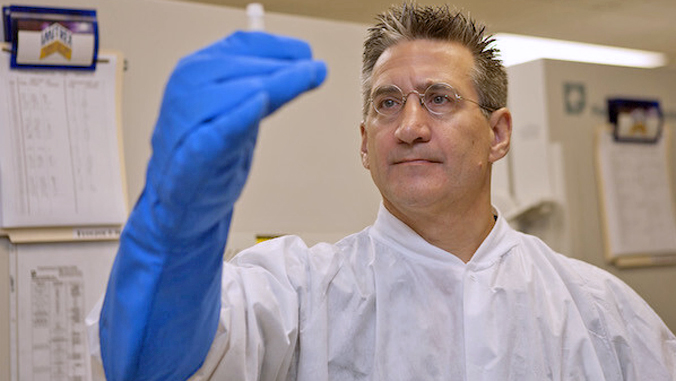
Chronic cardiometabolic diseases of aging such as diabetes, heart disease and high blood pressure increase the risks of death and a shorter lifespan. Men who have these diseases of aging and who have the longevity version of the FOXO3 gene were found to have a reduced risk of death, according to a new study. In fact, they lived just as long as men who did not have these diseases.
A collaboration of researchers from the Kuakini Honolulu Heart Program (HHP) and the University of Hawaiʻi at Mānoa John A. Burns School of Medicine (JABSOM), concluded novel insights into the basis for the long-established role of FOXO3 as a longevity gene, and that the FOXO3 longevity genotype increases lifespan only in at-risk individuals by protection against cardiometabolic stress.
Everyone has the FOXO3 gene, but only about one-third of us actually have the longevity version. For those who do not have it, and find themselves with a cardiometabolic disease, there is reason to be optimistic.
“There is well-known scientific evidence that cardiometabolic diseases can be reversed in many people through intensive lifestyle interventions mostly focused on a healthy plant-heavy diet and regular physical activity, and possibly [medication], so one should never lose hope,” said Bradley Willcox, principal investigator at JABSOM and director of the Kuakini Honolulu Heart Program Center for Translational Research on Aging. “If you don’t have the cardiometabolic factors that stress your body, such as hypertension, cardiovascular disease and inflammation that can be minimized at least in large part through a healthy lifestyle, you may not need as much genetic protection to live a long and healthy life.”
This particular study followed 3,584 men from the Kuakini HHP to examine the effects of the longevity version of the FOXO3 gene in men with cardiometabolic diseases. The lifespan of the 1,181 (47%) of 2,512 men who had the longevity version of the FOXO3 gene and a cardiometabolic disease was on average the same as that of the 1,072 men who did not have cardiometabolic diseases. In comparison, the study showed that the men in the cardiometabolic disease group who did not have the longevity version of the FOXO3 gene (53%) had a 19% higher risk of death and much shorter lifespan. The FOXO3 gene had no effect on lifespan for the men who did not have cardiometabolic diseases.
Protection for at-risk older individuals
The longevity version of the FOXO3 gene is fundamental to a robust response to cellular stress that occurs throughout life. The researchers suggest that this effect of the FOXO3 gene on cell resilience likely explains the protection provided to at-risk older individuals.
Willcox says one of the best examples of this was revealed in the Okinawa Centenarian Study (2005) that consisted of centenarians and other elderly persons in Okinawa. Collaborative research between Kuakini Medical Center and UH suggests that eating a traditional diet of Okinawan sweet potatoes, soy-based foods, green-yellow vegetables, seafood, less reliance on animal products, plentiful tea, alcohol in moderation, avoidance of smoking, combined with regular physical activity, a positive attitude, preventive health care, and social support has helped older Okinawans become the healthiest, longest-lived people in the world.
This study was published online in Aging and will be in an upcoming issue of the journal.
Read more on the JABSOM website.
This research is an example of UH Mānoa’s goal of Excellence in Research: Advancing the Research and Creative Work Enterprise (PDF), one of four goals identified in the 2015–25 Strategic Plan (PDF), updated in December 2020.

